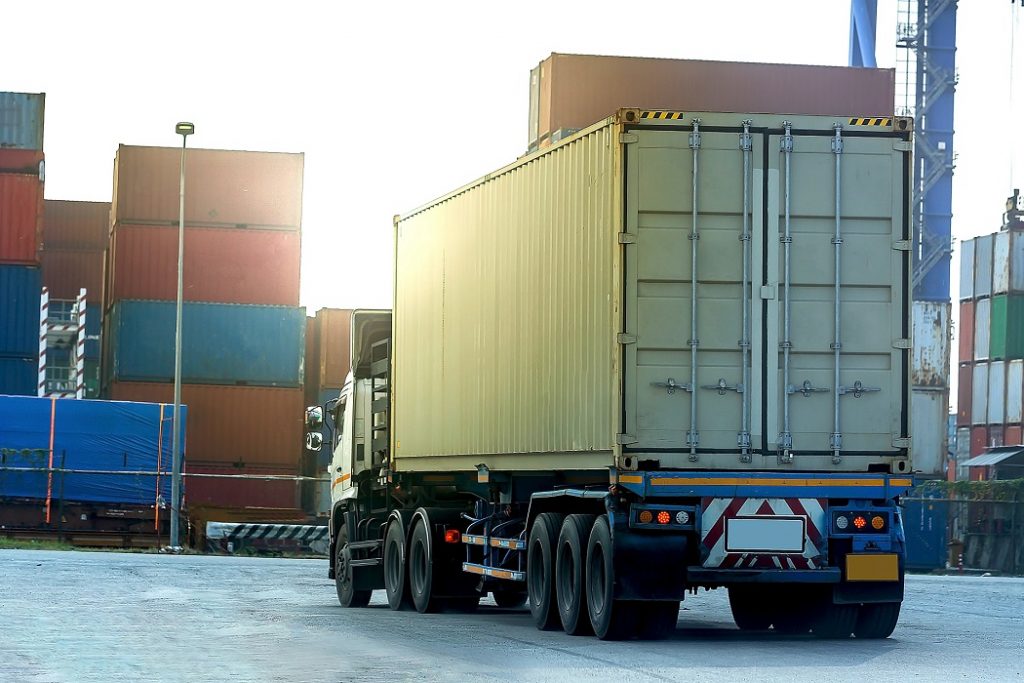Freight rate is the price at which a particular cargo is delivered from one point to another. The price depends on the shape of the cargo, the mode of transportation (truck, ship, train, plane), the weight of the cargo and the distance to the place of delivery. Many shipping services, especially air carriers, use dimensional weight to calculate the price that takes into account both the weight and the volume of the cargo.
If we need to define the term freight in more detail, it also means “the fee paid to the ship company for the transportation service for the goods transported by sea”. In terms of its meaning, it has been a general definition that describes the fee paid not only for the transportation made by sea, but also for the transportation service made by road, air or rail.
For example, the bulk coal long-distance rates in the United States can be calculated as a train with 100 wagons each carrying 100 tons will cost $100,000 from a distance of 1000 miles. On the other hand, Intermodel container shipping rates are largely dependent on the route taken over the cargo weight, as long as the container weight does not exceed the maximum loading capacity. Prices can range from $300 to $10,000 per TEU depending on the supply and demand of a particular route.
TEU: 1 TEU stands for 20 feet container and has a volume of 34 cubic meters. The term TEU is an abbreviation for “Twenty-foot Equivalent Unit” in English, and it began to be used as an industry standard for container loads.
Factors affecting freight rates
- Type of transport: Ship, Train, Road Vehicles, Airline vehicles,
- Type of cargo: Weight, Size, Volume
- Travel distance: The distance between pick-up and delivery points
- Travel costs: Depreciation, ship maintenance and repair expenses, fuel etc. expenses;
- Port costs: Costs related to the ship,
- Handling costs and port fees;
- It consists of storage costs and additional costs.
The main factor that constitutes freight transportation prices can be considered as port and storage costs. It is desirable to explain the costs related to the ship included in the port costs, and the costs incurred in the period until the ship is fully loaded after the ship is docked. Since the port is a place where transportation is not carried out for the ship, the longer the duration of the ship in the port, the more the related costs.
Storage costs, on the other hand, refer to the cost of keeping the goods in the warehouses from the time they arrive at the port until they are loaded on the ship’s deck / warehouse.
History
One of the oldest forms of freight transport was water. Most of the earliest settlements were built within reach of the sea shores and rivers. As these settlements grew, trade between settlements grew accordingly. Navigable waterways for freight transport and highways for transporting cargo to these roads were later built, linking inland collection and delivery points, which could not be reached by sea.
Transportation by ships is very limited by its nature. The goods cannot be transported by a ship unless there are navigable waterways near the collection point and destination. Goods arriving at ports by ship must be unloaded and transferred to another shipping method, namely trucks or wagons for transport to their final destination.
Freight Contract
Freight contract is the contract signed between the shipper and the carrier. With this contract, the obligations of the sender and the carrier are determined and the rights of both parties are secured. The most important article of this contract is that the person who will send the load is obliged to have the load ready and the carrier must have the transportation vehicle ready. The transporter receives a fee from the other party for the work it carries out. The owner of the burden is also obliged to pay. There are cases where the payment is made by the person who will receive the goods, which is stated on the bill of lading.
There are special cases where this contract is disabled and these situations can be listed as follows:
- If the ship is seized by the state or a foreign state
- In case of import or export prohibition on the goods to be transported
- In case of blockade of loading or arrival port
- At war
- Force majeure
Bill of Lading
Bill of Lading is the contract in which the goods are delivered to the carrier, in other words to the shipowner, without renting a place to carry goods on the ship, and the contract is made for the transportation of the goods alone.
Ordino
Ordino is an instruction to withdraw the goods against the bill of lading. Before the goods subject to trade are loaded or unloaded on the transportation vehicle, the transactions of the owner are completed with the order letter given to the carrier and the order is delivered to the customs administration.
Although this meaning of the order is valid only for the trade carried out by sea in the dictionary, the bill of lading is a document that has a place in air, road and rail transportation.
Warehouse
Storage is the place or warehouse where commodities are stored, the fee paid for items stored in such a location. Warehouse in maritime transport; It also refers to services such as storage, labeling and storage of containers and other cargo in closed and open areas and the fee charged for these services.
Freight Broker
The brokers who arrange the transportation of the goods to be exported are called freight brokers. These brokers, also known as “freight forwarders”, are not the owners of any transportation vehicle, they are only persons or institutions that carry out the transactions. They act as an intermediary between the freight owner and the carrier in return for a certain commission.
Freight Indices
Freight Indices are based on the fees obtained from the daily commercial activities of maritime transport, namely freight prices, and are published daily. Freight prices are determined daily by the information gathered from ship brokers and published in indices. Freight indices are one of the guiding elements for ship owners, brokers, traders, investors and economists. Some of the reliable Freight indices are as follows;
- Baltic Dry Index
- Container Shipping Index
- Maersk Broker Container Index
- China Containerized Freight Index


